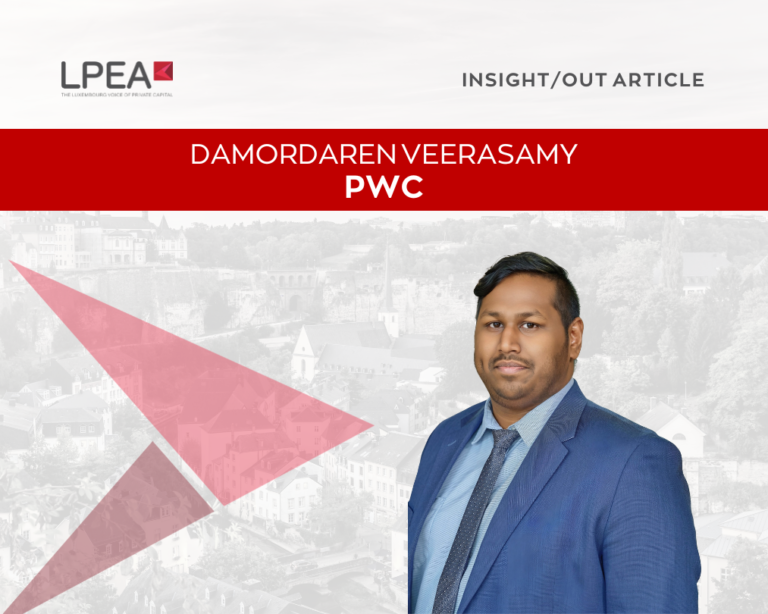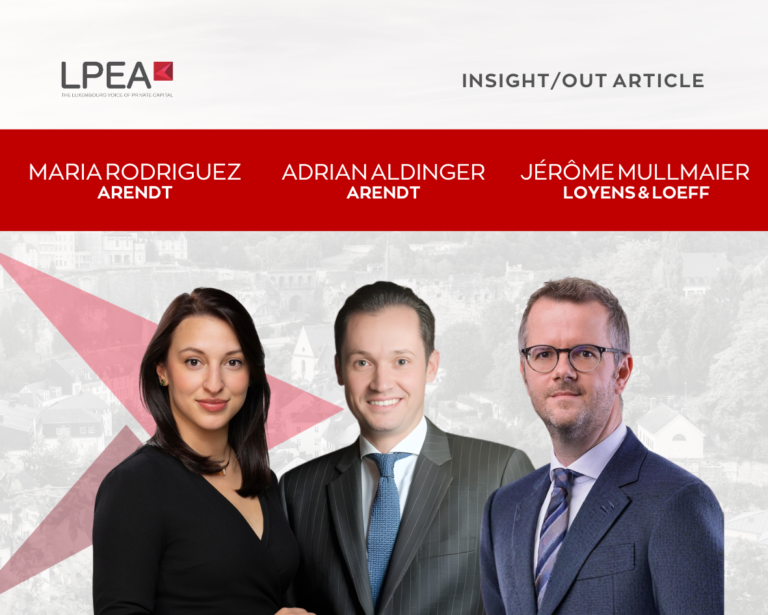By Emilie Moray, Legal & Regulatory Coordinator at LPEA
The Luxembourg Private Equity and Venture Capital Association (LPEA) held its annual conference on 17 October, bringing together industry leaders and stakeholders to discuss the latest trends and insights in the Private Equity (PE) and Venture Capital (VC) Industry. This year’s edition focused on operational excellence in private markets, highlighting the importance of effective management strategies in navigating the current complex environment. Panellists explored innovative approaches to investment, the integration of technology, as well as the evolving expectations of investors, underscoring the need for firms to adapt in order to succeed in an ever-changing market.
Operational excellence in fund and portfolio management are central for driving growth and navigating the increasingly challenging market. Firms must adopt tailored approaches that moves beyond a one-size-fits-all operating model, particularly in strategic areas like technology, innovation and clients servicing.
Building robust relationships with teams and investors is essential, as it allows investors to understand the foundations of each business and fosters collaboration to support adaptation to changing market dynamics.
The integration of artificial intelligence (AI) and data science can significantly enhance competitive advantage, enabling firms to derive insights from data intelligence and effectively track evolutions. Establishing a robust data-based, technological architecture, while recognising the human role in fast-evolving situations, ensures a holistic view of operations. KPIs remain crucial in measuring and reporting success in a sophisticated market characterised by consolidation trends. This multifaceted approach requires operational excellence in order to positions firms for sustainable success.
Navigating the Regulatory Landscape: towards Value Creation through ESG and Cyber Resilience
The journey from regulation to value creation in ESG can be challenging, particularly in the early stages, but the long-term benefits can be significant. By focusing on value creation, companies can unlock growth opportunities while appealing to environmentally-conscious investors. Regulations such as the Corporate Sustainability Reporting Directive (CSRD) and the Sustainable Finance Disclosure Regulation (SFDR) emphasise the need for robust ESG frameworks.
Establishing proper procedures and resources to address ESG topics is thus needed. Firms should set clear targets, benchmark against peers, and adopt step-by-step processes for integration. Indeed, as companies will improve their reporting practices, the quality of data will enhance, notably reinforcing attractiveness to investors. This holistic approach will not only enhance financial returns but also foster long-term sustainability, reflecting the current growing importance of ethical considerations. Embracing ESG principles can indeed lead to a resilient business model that drives both economic and social value.
On the cyber resilience scene, GPs and Board Members play a strategic role in ensuring digitally resilient momentum throughout the organisation and beyond. Effective oversight and audit mechanisms are strategic. So is the pre-investment cybersecurity due diligence. Post-investment, it remains crucial to ensure that portfolio companies enhance their cybersecurity posture and framework, safeguarding not only their assets but also the fund’s reputation. Implementing robust data protection measures and security controls is vital to address cybersecurity risks, which is even more applicable in the context of DORA. By prioritising cybersecurity governance, GPs can build cyber-resilient portfolios, ultimately preserving the integrity of their investments and fostering trust among stakeholders where data breaches can have significant repercussions on the company as a whole.
Nurturing Investor Confidence in a Competitive Landscape
In today’s selective market, building and nurturing investor confidence requires a multifaceted strategy emphasising transparency and trust overtime. As investors increasingly seek diversification, the importance of metrics such as DPI and other KPIs cannot be overstated. Effective liquidity management techniques and well-planned, successful exit strategies are central in demonstrating the company’s reliability. Investors desire to see tangible progress, making the narrative surrounding investment journeys critical. Moreover, as investor strategies become more sophisticated and heterogeneous, it is important to recognise that this diversity in investors’ strategies allow both large and smaller players to thrive. While AI can enhance operational excellence, it remains certain that the human factor is vital in the industry. By prioritising transparency and engaging with investors, firms can cultivate lasting confidence, leading to stronger partnerships and sustained success.
In the field of Wealth Management, close monitoring of these investments is key to ensure alignment with client expectations. Integrating ESG criteria into the due diligence process is not just a best practice but a necessity, as ESG considerations should be woven into investment strategies from the outset. Wealth Managers also have a duty of preservation, safeguarding clients’ capital while promoting responsible practices, in order to align with sustainable considerations.
Opportunities and Challenges in the VC Market
Adopting a multi-level approach in structuring VC Funds is interesting as it fosters (i) structural flexibility to allow adaptation to various investment strategies and market conditions (ii) investor protection including safeguards to ensure transparency and accountability, and (iii) an appropriate taxation regime that incentivises investment. By considering these levels, the Fund can effectively navigate the complexities of the VC market, driving growth and stability in the start-up ecosystem.
In terms of challenges, fundraising intricacies were highlighted during the conference. Success seems to hinge upon offering differentiated value propositions and fostering stronger investor relations. As the market anticipates renewed momentum in VC fundraising, it becomes indeed essential to focus on long-term value creation while building robust relationships with investors. Managers must approach a diverse range of investors, tailoring their investment framework to meet varying expectations and requirements. The management team plays a pivotal role in this process, as their experience and vision can significantly influence the decision-making process. In order to stand out, VC firms must differentiate themselves through unique insights and innovative approaches, ultimately aiming to build a diversified base of Limited Partners (LPs).
In this dynamic context, effective due diligence processes play a central role for Business Angels (BAs) and VCs, utilising strategic KPIs to evaluate potential investments most effectively. While both BAs and VCs share important due diligence KPIs, BAs may prioritise metrics related to early-stage viability, while VCs might concentrate on scalability and market potential. Additionally, sustainability considerations at the due diligence level is becoming increasingly important, as investors seek to align their portfolios with ESG standards.
Insights in Private Markets: Evolution of Perpetual Funds, Strategic M&A
Perpetual funds undergo a significant evolution in investment strategies, while promoting democratisation in finance by enhancing accessibility and inclusivity. With a trend towards retailisation, investors’ education is key to ensure proper understanding of the unique features and benefits of perpetual funds compared to other structures. Effective liquidity management tools are needed to balance accessibility with a long-term investment horizon, and diversification strategies are crucial for mitigating risk. By collaborating with wealth managers, fund managers can more effectively manage investor expectations, ensuring clients are well-informed about the nuances of perpetual investments and their potential for sustainable growth.
In the realm of M&A deals, seizing opportunities are at the core of creating success stories. Once the strategic partnership has been initiated, it remains essential to grow the business while fostering the existing entrepreneurial culture to stimulate innovation and adaptability. By deepening customer relationships in understanding their needs, companies can further expand their market share while delivering quality service that meet customers’ expectations. Moreover, investments in technology can enable efficiency, allowing businesses to maintain growth momentum while enhancing their capabilities. By focusing on these elements, organisations can complement their offerings and secure long-term success.
Conclusion
In the ever-evolving landscape of private markets, operational excellence is not merely an aspiration but a necessity. By embracing tailored strategies, fostering strong investor relations, and prioritising principles such as Sustainability, Transparency and Adaptability, firms can navigate the complexities of the market and position themselves for sustainable success. As the industry continues to evolve, the commitment to operational excellence will remain a defining characteristic of those who wish to stay ahead in this competitive environment.




